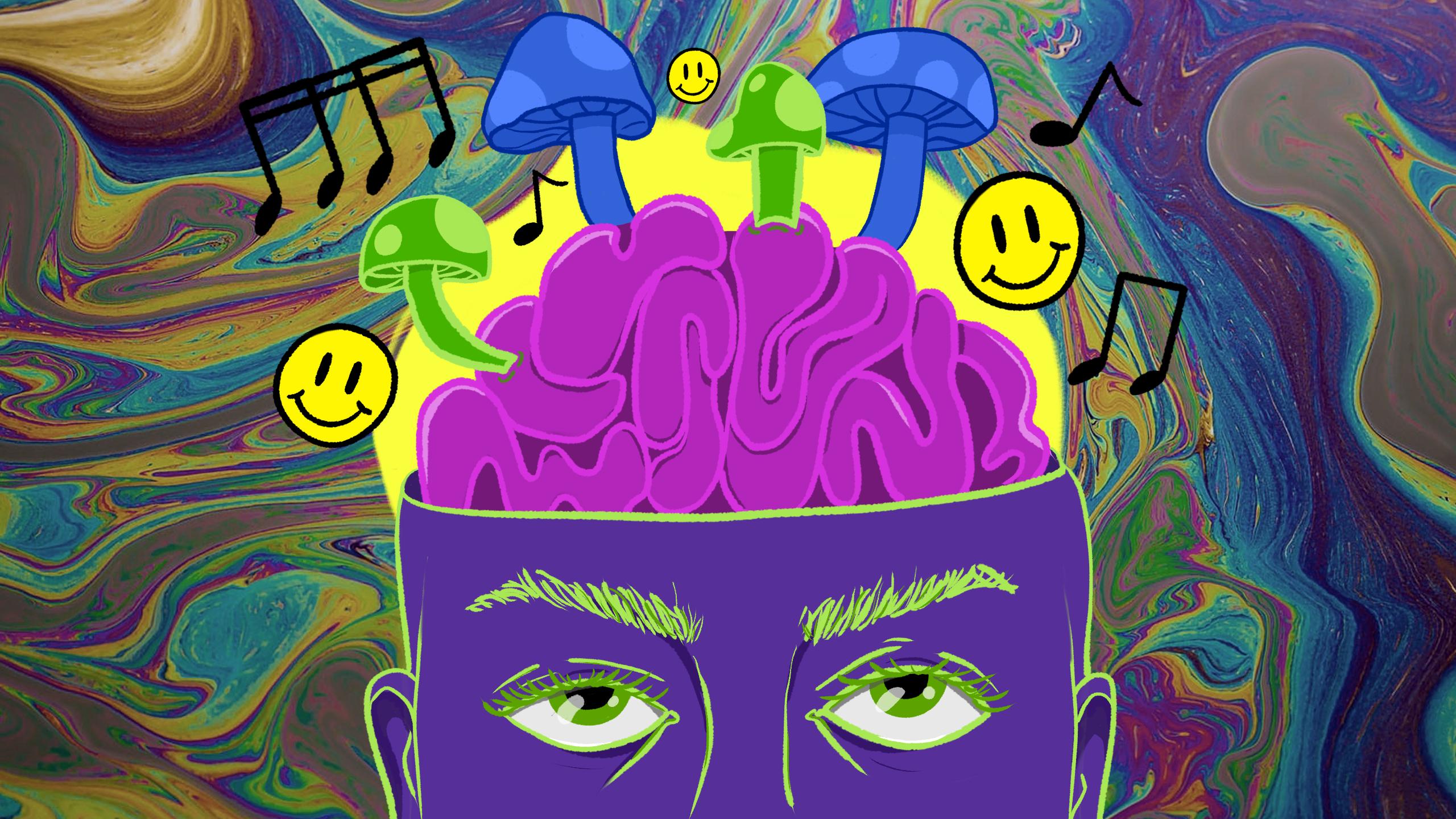By Nabeeha Baig
NeonMind Biosciences Inc., a company specializing in psychedelic mushroom research for therapeutic use, has hired Ryerson psychology professor Frank Russo for a future clinical trial as an advisor.
Russo is an affiliate scientist at the Toronto Rehabilitation Institute, a core member of the McMaster Institute for Music and the Mind and an adjunct professor at the University of Toronto’s Music and Health Collaboratory.
According to a press release from NeonMind, Russo will assist the company in developing “effective protocols” for psychedelic treatment that include music as part of the therapy. He also plans to build “partnerships in the music industry” and set up projects to support the use of music in improving mental well-being and drug addiction treatment, as stated on the company’s website.
“Music has such a transformative effect on the brain [and] I can foresee its potential to enhance the results that are achievable with psychedelic therapy as well,” said Russo.
In the past, Russo’s basic research explored psychology and neuroscience tools that can be used to study music, speech and nonverbal communication, while his applied research focused on music-based interventions to reach “communicative and prosocial gains,” meaning behaviours intending to help other people.
“We’re pursuing clinical research to help us continue down the path of seeking approval for the treatment and [we are] very pleased to be on this journey”
The use of psilocybin for mental health care has gained traction in the last few years. This past summer, Canadian Nurse, an online magazine that shares diverse and innovative ideas in the nursing community, published an article about “psilocybin-based psychotherapy.”
Psilocybin is a chemical compound found in hallucinogenic mushrooms, or “magic mushrooms,” usually from Mexico, South America and the southern United States. The drug has been proven to accelerate the healing process for people experiencing “distressing emotional symptoms such as depression, OCD and anxiety,” according to The Behavioral Wellness Clinic, a mental health and counselling service in the U.S.
In the Canadian Nurse article, two trained therapists monitored a patient as they lay on a couch listening to music with eye shades on. The sessions were said to provide an “emotional breakthrough and experience that often leads to mood improvement, antidepressant effects and stress relief—with clinically significant improvements lasting more than six months.”
The article states that psilocybin has the ability to “transform the mind and produce a psychologically transformative state.” In doing so, the patient’s self perception changes and any limitations to exploring past traumas are “temporarily lifted.”
“For these sessions, the patient’s mindset is essential before, during and after,” said Rob Tessarolo, CEO of NeonMind. “Dr. Russo’s work has shown music can affect a person’s emotional trajectory, so music can potentially be used to set up treatment success.”
While psilocybin has been found in natural substances like fungi for thousands of years, Tessarolo said there has been a resurgence of research for the drug and its potential uses. For him, these initiatives are all about following the clinical science and results.
“Usually patients try a treatment, it works for a while, and then they crash back and return to the presentations that they had originally.”
Tessarolo recently joined the team at the end of January and was particularly intrigued by the company’s work in the area of obesity and weight management.
“We have a belief that music has an impact on the brain, and its effect on the brain will play an important role in the administration of a psychedelic therapeutic treatment,” he said.
Coming from a pharmaceutical and psychedelic drug development background, Tessarolo said he tries to find innovation anywhere he can. On average, only 12 per cent of drugs tested in clinical trials gain Food and Drug Administration (FDA) approval, and the time consuming, expensive process makes the need for innovative ideas quite valuable in this industry.
“These cycles are directly related to treatment failure, either lack of efficacy or lack of a durable effect,” Tessarolo said. “Innovation through drug development could seek to address these shortcomings.”
“We think we can break the vicious cycle of these diseases like addiction, depression and obesity,” he said. “Usually patients try a treatment, it works for a while, and then they crash back and return to the presentations that they had originally.”
Tessarolo said the current evidence that shows the effects of psychedelic substances is growing, which helps the team understand where these substances have the potential to heal.
“More investment and research is needed to deliver clear and compelling data that support safety and efficacy,” he said.
Wanting to ensure that patients will be experiencing the trial in the “best state of mind possible,” Tessarolo was pleased with Russo’s credentials and research.
He added that if the findings from this trial prove to be safe and effective, it would confirm this method to be the only one that’s created any potential change for patients.
“These are indeed exciting times in the area of psychedelic drug development,” he said. “We’re pursuing clinical research to help us continue down the path of seeking approval for the treatment and [we are] very pleased to be on this journey.”










Rachel
Great read! I work for a company researching how psilocybin can be a potential therapeutic option for alcoholism, and I must say the benefits of psychedelics blow my mind away. Glad to see it being recognized all over the world.